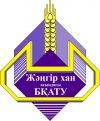
«Enhancement of Postgraduate Studies on Sustainable Agriculture and Future Farming Systems– SAGRIS»
610383-EPP-1-2019-1-DE-EPPKA2-CBHE-JP
610383-EPP-1-2019-1-DE-EPPKA2-CBHE-JP

Life of the project: January 15, 2020 – January 14, 2023
The coordinator: Nuertingen-Geislingen University)
General aim of the project is the demand of educating doctoral students on high quality and international standards to increase knowledge based solutions for sustainable agriculture and future farming systems – a topic of national, cross-regional and international relevance.
https://www.instagram.com/sagris_erasmusplus/?igshid=1manfekrz4kxf
https://www.facebook.com/Sustainable-Agricilture-and-Future-Farming-Systems-105720860986684/
– to develop and establish four post-graduate modules at 8 HEIs in different regions to qualify doctoral students on inter- and transdisciplinary contents and approaches relevant for agricultural research and innovation;
– to increase the human capacity, literature base and equipment of partner institutions to provide doctoral education according to international standards and best-practices;
– to strengthen international and interregional academic exchange and research cooperation among project partners;
– to establish a network on doctoral research and education in the agricultural field targeted on the exchange of best practices with a wider audience.
EU – HEI programme country partners
1. Nuertingen-Geislingen University – HfWU (coordinator)
2. Warsaw University of Life Sciences – WULS
3. Czech University of Life Sciences, Prague – CULS
4. DITSL Witzenhausen – DITSL
5. Estonian University of Life Sciences, Tartu – EMU
RF – HEI regionalpartners
6. Stavropol State Agrarian University – SSAU
7. Novosibirsk State Agrarian University – NSAU
8. Buryat State Academy of Agriculture – BSAA
9. Yakutsk State Agricultural Academy – YSAA
KAZ – HEI regionalpartners
10. S.Seifullin Kazakh Agro Technical University, Nur-Sultan – KATU
11. Kazakh National Agrarian University, Almaty – KazNAU
12. Zhangir Khan West Kazakhstan Agrarian-Technical University, Uralsk – WKATU
13. A.Baitursynov Kostanay State University – ABKSU
Research institutions and consultative bodies in the partner countries
14. National Centre for Public Accreditation NCPA, Russian Federation
15. Independent Agency for Accreditation and Rating IAAR, Kazakhstan
16. National Agrarian Science and Educational Centre NASEC, Kazakhstan
17. Russian Academy of Sciences RAN (including RU research institutions)
Associatedpartners
18. Ministry of Agriculture of Russian Federation – MCX RF
19. Ministry of Agriculture in Kazakhstan – MCX KZ

Irina Bogdashkina – Coordinator of the project, the head of Strategic Development and Analysis Department, Candidate of pedagogical sciences.
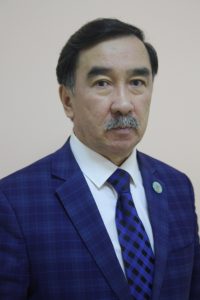
Marat Onayev – Director of Agro Technological Institute, Candidate of Engineering Sciences, associate professor.
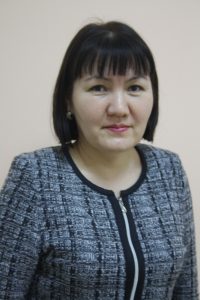
Aliya Kushenbekova – senior lecture of High school of food and downstream production technology, PhD.
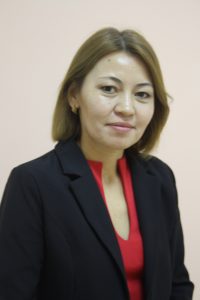
Aliya Nagiyeva – acting associate professor of High school of soil maintaining, agricultural chemistry and land utilization, PhD.
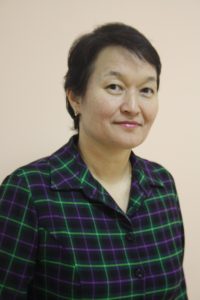
Faruza Zakirova – associate professor of High school of veterinary science and biosafety, candidate of agricultural sciences, associate professor.
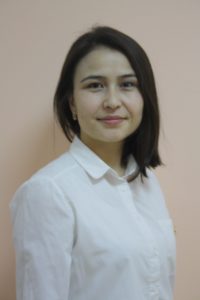
Araigul Zhumayeva – lecturer of High school of animal husbandry product technology, PhD.

Nurgul Montayeva – senior lecturer of High school of veterinary science and biosafety, PhD.

Gulzhamal Irgaliyeva – Administrator of the project, International Cooperation Specialist, master of pedagogical sciences.

Aizhan Ibyzhanova – associate professor of the High School of Economics and Audit, Candidate of economic sciences.
The module describes the technical background of Smart Farming Systems and digital technologies used in agricultural production. When studying this module, doctoral students will explore the potential of Smart Farming methods in order to increase resource-efficiency of agricultural production and sustainability of farming systems. Furthermore, they will be able to evaluate, assess and discuss the resource efficiency of different agricultural production systems.
Professional, methodological and practical content is covered in the following topics:
- 1. Resource-efficient approaches for sustainable agriculture.
- 2. Digital technologies in agriculture and Smart Farming techniques.
- 3. Farm management information systems
- 4. Precision agriculture (crop farming and livestock breeding).
- 5. Agricultural automation and robotics.
The module highlights the impacts and implications of climate change on food security: assessing economic risks related to agriculture operating under climate change. It gives professional competence in forecasting and determining the impact of climate change on production activity, productivity and sustainability of crop and livestock production systems and the adaptation of evidence based (research-rooted) ecologically safe crop and livestock production systems to the adverse effects of climate change. Professional, methodological and practical content is covered in the following topics:
- 1. Climate change impact on agricultural production systems
- 2. Climate change effects on food security
- 3. Sustainable resources management (water, ecosystems, land management)
- 4. Environmentally friendly crop production (healthy agricultural products)
- 5. Sustainable livestock systems and animal welfare
This module offers doctoral students an overview of how to design, plan and conduct advanced scientific research projects from inception to completion: including proposal writing, data collection, analysis and sharing results through publications and presentations. Through the promotion of rigorous scientific practice, students will be able to create relevant research that has traction in broader sustainability debates.
The following subtopics are to be explored:
- 1. Research data management
- 2. Scientific publishing, incl. methods of literature research
- 3. Advanced statistical methods
- 4. Target group oriented presentations (poster, ppt…)
- 5. Writing grant proposals
- 6. Project and time management
Through this module doctoral students will learn how innovations to complex problems in agriculture and food systems can be developed together with societal stakeholders using a transdisciplinary research approach. The module focuses on social sciences methodologies and system approaches, particularly with regard to understanding human actions and behaviour and the importance of underlying knowledge for system functioning and change.
The following aspects are covered:
- 1. Introduction to sustainability in agriculture and food systems.
- 2. System approaches: conceptual and theoretical foundations of socio-ecological systems and human activities.
- 3. Participatory and qualitative methods of transdisciplinary research.
